Genetic Counseling
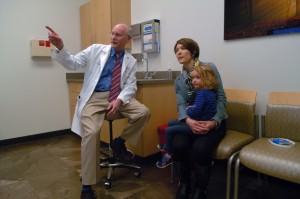 Genetic Counseling is available for group participants and medical providers to review the interpretation of the genetic test results. The HudsonAlpha genetic counselors provide a critical service to individuals and families undergoing genetic testing by investigating family history and interpreting the information gathered from both risk assessments and the genetic testing process itself. Genetic counselors help physicians and the public understand what this data means to their lives.
Genetic Counseling is available for group participants and medical providers to review the interpretation of the genetic test results. The HudsonAlpha genetic counselors provide a critical service to individuals and families undergoing genetic testing by investigating family history and interpreting the information gathered from both risk assessments and the genetic testing process itself. Genetic counselors help physicians and the public understand what this data means to their lives.
Our team of genetic counselors has years of experience educating and supporting programs like CSER (Clinical Sequencing Evidence-Generating Research), SouthSeq, Information is Power and the UAH nursing programs for HudsonAlpha Institute for Biotechnology and the Smith Family Clinic for Genomic Medicine. Genetic counselors are an important part of the HudsonAlpha Health Alliance team. They work with patients and their families to help them understand genetic testing, guide them through the process and help them make informed choices based on their genetic testing results.
Our genetic counselors have put this slideshow together to help medical providers discuss genetic information with their patients: Genomics and Your Patients.
Genetic Counseling Patient Education
What is genetic counseling?
Genetic counseling is the process of helping individuals understand how genetic information relates to human health and disease risk. Specially trained healthcare providers with expertise in genetics and communication, genetic counselors are able to translate complicated information in a way that can be easily understood and used to guide medical care. Genetic counselors use these skills to help provide education and counseling to patients, other healthcare providers, and the general public.
Why would someone be referred to a genetic counselor?
There are a variety of reasons that someone may be referred for, or seek out, genetic counseling. Individuals with a known or suspected genetic condition in either themselves or a family member may benefit from a genetic counseling appointment. In addition, individuals who are considering any kind of genetic testing may also benefit from discussing the benefits, limitations and potential results with a genetic counselor. If you have questions about whether you might benefit from genetic counseling, we encourage you to contact the Smith Family Clinic for Genomic Medicine, LLC.
What can I expect to learn at a genetic counseling appointment?
Often, genetic counseling begins with a thorough collection of a person’s medical and family history. The rest of the appointment largely depends on the reason for consultation. It may include a discussion about a known genetic condition or the likelihood that a genetic condition is responsible for symptoms in a patient or family. Genetic counselors are also equipped to provide education about inheritance and disease risk, genetic testing options, and management of genetic conditions. In addition, genetic counselors often connect patients with resources for support and research.
What are some of the programs where the genetic counselors at HudsonAlpha play a key role?
South-Seq, Information is Power, Smith Family Clinic for Genomic Medicine, UAH nursing program are a few.
What is South-Seq?
South-Seq performs whole-genome sequencing on newborns suspected to have genetic disorders and develop and test return of results mechanisms to expand access to genetic testing to diverse, especially historically underserved, communities. The HudsonAlpha genetic counselors play a key role in helping counseling the patients. To learn more, go to hudsonalpha.org/southseq
What is Information is Power cancer risk testing?
The take-at-home test looks for the well-known BRCA1 and BRCA2 genes, as well as several dozen other genes linked to an increased risk of developing breast, ovarian, colon, prostate, pancreatic and other cancers. A simple cheek swab could help empower you to make important health care decisions for you and your family. A positive test doesn’t necessarily mean you will develop cancer, and a negative test doesn’t mean you will be cancer-free. However, with the results of the test, you along with your physician can make more informed choices for managing your cancer risk. What you learn about your own genes also has a potential impact on your family members. Genes are inherited, and finding out about a genetic risk factor may provide information for your sons, daughters, brothers, sisters, and other relatives who are also at an increased risk. If you receive a positive result from the Information is Power test, meaning a genetic risk factor is found, one of our genetic counselors will call you and your healthcare provider to discuss the result and next steps in more detail. To find out more, go to information-is-power.org
What is the Smith Family Clinic for Genomic Medicine?
The Smith Family Clinic for Genomic Medicine, LLC., diagnoses patients with undiagnosed and misdiagnosed diseases. Patients will be seen by a clinical geneticist and genetic counselor who will evaluate symptoms, or patient phenotype, and determine whether whole genome sequencing or another genetic test is appropriate. The data found from the genomic sequence is then interpreted clinically to identify variants, or changes in the DNA, linked to disease. To find out more: go to www.smithfamilyclinic.org
Our Team
As more genetic data becomes available, the need also grows for genetic counselors to help physicians the public understand what this data means to their lives. HudsonAlpha’s team of genetic counselors, lead by Kelly East, CGC, aims to meet this need.
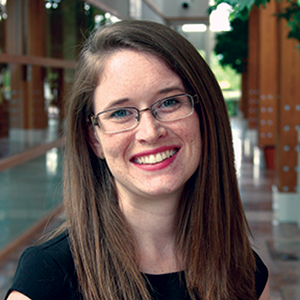 Kelly East, CGC
Kelly East, CGC
Kelly is a board-certified genetic counselor and Huntsville native who joined HudsonAlpha Institute for Biotechnology’s Educational Outreach team in 2008. Kelly oversees and participates in the provision of genetic and genomic counseling for clinical services at The Smith Family Clinic for Genomic Medicine. Kelly also does the same for research projects at HudsonAlpha Institute for Biotechnology and leads the development of educational experiences and resources for healthcare providers, trainees and patients. In addition, she has prior clinical experience as a genetic counselor in an oncology setting. She received a Bachelor of Science in Microbiology from Auburn University and a Master of Science in Genetic Counseling from the University of North Carolina – Greensboro.
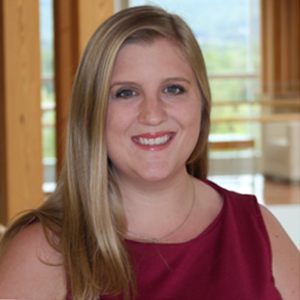 Meagan Cochran, CGC
Meagan Cochran, CGC
Meagan is a board-certified genetic counselor from Birmingham, AL. She received a Bachelor of Science in Zoology from Auburn University and a Master of Science in Genetic Counseling from the University of Alabama at Birmingham. Prior to joining the genetic counseling team, Meagan practiced clinical genetic counseling in a variety of settings including pediatrics, adult medicine and genomics. Besides being a genetic counselor for The Smith Family Clinic for Genomic Medicine and pediatric genomics research projects, Meagan’s special interests include optimizing service delivery models for genomic medicine.
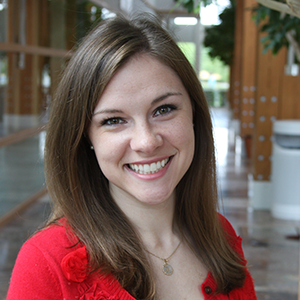 Whitley Kelley, CGC
Whitley Kelley, CGC
Whitley is a board-certified genetic counselor from Carbon Hill, AL, who now calls Huntsville home. She received a Bachelor of Science in Cell and Molecular Biology from Auburn University and a Master of Science in Genetic Counseling from the University of Alabama at Birmingham. Genetic counselor for HudsonAlpha Institute for Biotechnology’s pediatric genomics research projects and The Smith Family Clinic for Genomic Medicine, Whitley’s special interests include developing innovative ways to apply genetic counseling and education to enhance the patient’s experience in a clinical setting.
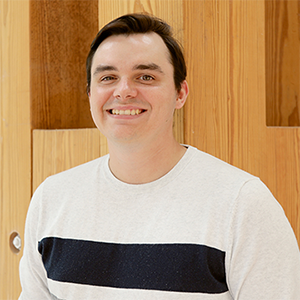 Tanner Coleman, CGC
Tanner Coleman, CGC
Tanner Coleman is a genetic counselor from Graniteville, SC. He received a Bachelor of Science in Biological Sciences from the University of South Carolina and a Master of Science in Genetic Counseling from the University of North Carolina Greensboro. In addition to being a genetic counselor for The Smith Family Clinic for Genomic Medicine and pediatric genomics research projects, Tanner’s special interest is in educating non-genetics healthcare providers to improve the provision of genetic services.
